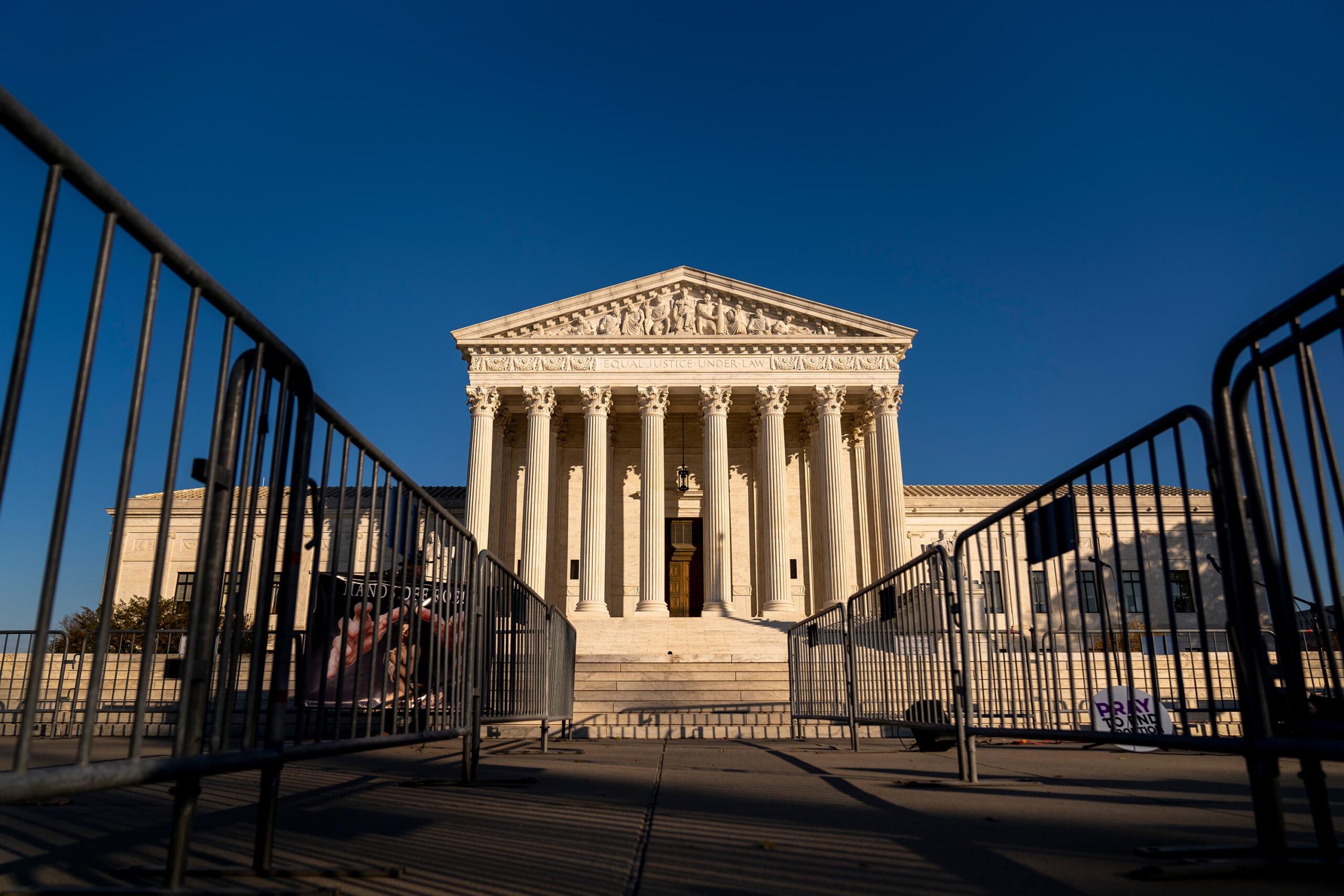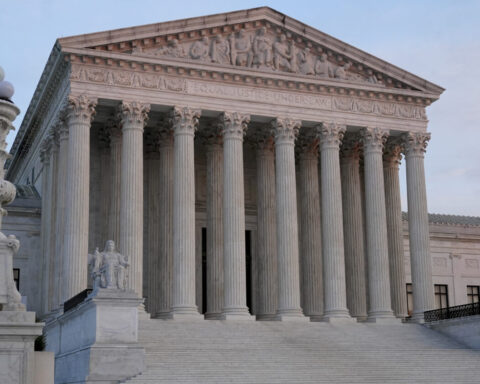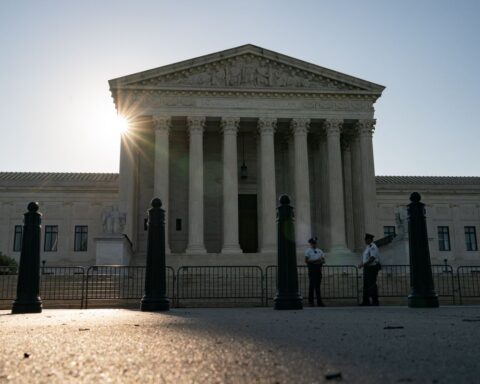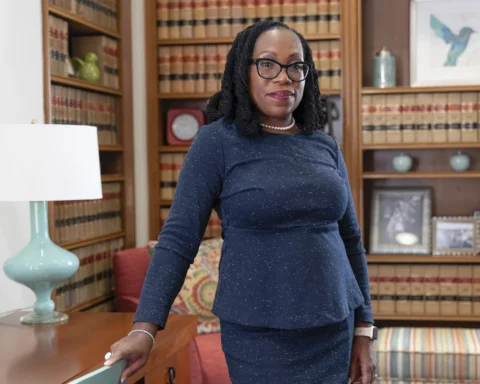The conservative-leaning Supreme Court will take up the most important abortion case in 30 years Wednesday as the justices consider Mississippi’s request to overturn Roe v. Wade and uphold a state law that bars the procedure 15 weeks after conception.
The dispute represents the culmination of a decades-long effort on the part of critics of the landmark opinion that legalized abortion nationwide to return the issue to the states, a move that would almost immediately eviscerate abortion rights in large swaths of the South and the Midwest.
The very fact that the current court, with its solid six-member conservative majority, agreed to even consider a state law that bars abortion long before viability suggests that the court — bolstered by three of former President Donald Trump’s appointees — is poised to scale back court precedent if not reverse it outright. Already, in a separate dispute, the court is considering a Texas law that bars the procedure after six weeks and the justices have allowed that law to remain in place for three months, rendering Roe a dead letter in the country’s second largest state.
Championed by supporters of abortion and long reviled by critics, Roe was decided in 1973 and reaffirmed in 1992, in Planned Parenthood v. Casey. Sixty percent of Americans say Roe should be upheld, according to an ABC News/Washington Post poll conducted in November.
At issue Wednesday is Mississippi’s Gestational Age Act, passed in 2018 but blocked by two federal courts, which allows abortion after 15 weeks “only in medical emergencies or for severe fetal abnormality” and has no exception for rape or incest. If doctors perform abortions outside the parameters of the law, they will have their medical licenses suspended or revoked and may be subject to additional penalties and fines.
A district court blocked the law, holding that it is in direct violation of Supreme Court precedent legalizing abortion nationwide prior to viability, which can occur at around 23-24 weeks of pregnancy.
A panel of judges on the 5th US Circuit Court of Appeals agreed with the district court holding that in an “unbroken line dating to Roe v. Wade, the Supreme Court’s abortion cases have established (and affirmed and re-affirmed) a woman’s right to choose an abortion before viability.” The court said states may “regulate abortion procedures prior to viability” so long as they do not ban abortion. “The law at issue is a ban,” the court held.
Mississippi appealed the decision to the Supreme Court, and after the justices agreed to hear the case, the state raised the stakes and argued that the justices should not only uphold the law but also invalidate Roe and Casey.
Mississippi Solicitor General Scott Stewart told the justices in briefs that “nothing in constitutional text, structure, history or tradition” supports a right to abortion. He argued that the case for overruling court precedent is “overwhelming” and that both Roe and Casey are “egregiously wrong” and have proved “hopelessly unworkable.”
“Nothing but a full break from those cases can stem the harms they have caused,” Stewart argued in the briefs. “Roe and Casey are unprincipled decisions that have damaged the democratic process, poisoned our national discourse, plagued the law — and, in doing so, harmed this Court.”
As a secondary argument, Stewart proposed ways the court could uphold the law without — on its face — overturning precedent. He said that “at a minimum” the court could reject a viability line as a barrier to prohibiting abortion. Or the justices could hold that a ban at 15 weeks would not impose a substantial burden because it would not create an obstacle to a significant number of women in the state.
Lawyers for Jackson Women’s Health Organization, the only licensed abortion clinic in Mississippi, and Sacheen Carr-Ellis, the clinic’s medical director, told the justices there is no way to sustain the controversial law without effectively overturning Roe. They urged the court to “reject the invitation to jettison a half-century of settled precedent.”
“Accepting Mississippi’s request to abandon the viability line would turn back the clock for generations who have never known what it means to be without the fundamental right to make the decision whether to continue a pregnancy,” Julie Rikelman, the senior litigation director for the Center for Reproductive Rights who is representing the clinic, argued in court papers.
She noted that “two generations — spanning almost five decades — have come to depend on the availability of legal abortion and the right to make this decision has been further cemented as critical to gender equality.”
Arguing for the Biden administration in support of the clinics, Solicitor General Elizabeth Prelogar urged the justices to uphold precedent and avoid a ruling that would disproportionally harm women who have come to depend upon the decision.
“If states are permitted to ban pre-viability abortion, the effects are likely to be felt most acutely by young women, women of color, and those of lesser means, further diminishing their opportunities to participate fully and equally in the Nation’s social and economic life,” Prelogar said.
The case comes as states hostile to Roe across the country are moving aggressively to pass abortion restrictions.
“Over 100 restrictions passed this year,” said Nancy Northup, president of the Center for Reproductive Rights, said in a conference call with reporters before the arguments.
She noted that 54,000 to 63,000 people get abortions after 15 weeks every year in the US and that if Roe were overturned, nearly half the states would ban abortion entirely. Twelve states have so called “trigger” laws in place designed to ban abortion immediately. Nine more have pre-Roe bans on the books and the rest have legislatures historically hostile to Roe.







